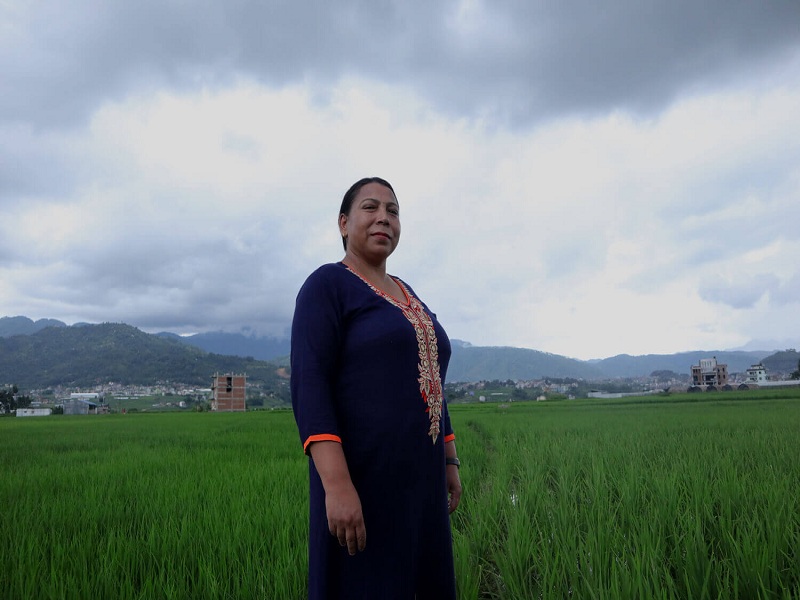"When the stalks of rice grow taller, you must come back here again," she says. "They move in the wind like waves in the ocean."
Standing on the balcony of her home in Sano Gaun of Lalitpur, where poet Pancha Kumari Pariyar lives with her husband and their 8-month-old son, I am struck by the sight of green -- that there is any left, and what respite even a small patch brings.
Pancha Kumari's poetry is much like that patch of green, a long deep breath in a literary scene dominated by non-Dalit voices. Born in 1979, in Buipa of Khotang, Pancha Kumari has published two books of poetry. Her first collection, Sapana Ra Ankhaharu (Dreams and Eyes, 2005) includes poems written from 1998-2004 between Dharan and Kathmandu.
When her second book, Juthi (Juthi, 2013) was brought out by Sajha Prakashan, Pancha Kumari became the first Dalit woman to be published by Nepal's oldest and most reputable publication house. The titular poem, Juthi, is currently taught at Purbanchal University. When asked if the name Juthi means anything, Pancha Kumari tells me it is the name of a low-caste Dalit woman. It was her friend, Raju Syangtan's idea. "Raju bhai reminded me of the struggles I had to go through as a Dalit woman to arrive here. He said I should honour my journey by naming my collection after an ordinary Dalit woman, because I, too, am Juthi. Let ordinary Dalit women also be protagonists in Nepali literature, why not?"
Besides writing, Pancha Kumari has worked as a social mobiliser on projects under the Rural Development Fund, the Dalit Welfare Organisation and the National Planning Commission. She also ran a literary radio program on Mero FM, where she invited Nepali writers for interviews and readings. Pancha Kumari was the editor of Dalit Darpan, a leftist publication of Dalit writings. She is a member of the Maoist party, and says she was drawn to the party's ideals because she wanted equality for Dalits, Muslims and women. "I cannot say that the war benefitted individual lives and families, but on a larger political level the Maoists uplifted the Dalit community and made us more visible."
Source: Nepali Times0 COMMENTS



